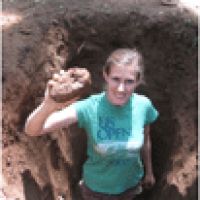White et al., 2017
Integrated Interdisciplinary Science of the Critical Zone as a Foundational Curriculum for Addressing Issues of Environmental Sustainability
Timothy White, Adam Wymore, Ashlee Dere, Adam Hoffman, James Washburne, and Martha Conklin (2017)
Journal of Geoscience Education Vol. 65, No. 2, pp. 136-145 National
-
National, Shale Hills, INVESTIGATOR, STAFF
-
Luquillo, INVESTIGATOR
-
Shale Hills, INVESTIGATOR, COLLABORATOR
-
Catalina-Jemez, INVESTIGATOR
-
Sierra, INVESTIGATOR
Abstract
Earth's critical zone (CZ) is the uppermost layer of Earth's continents, which supports ecosystems and humans alike. CZ science aims to understand how interactions among rock, soil, water, air, and terrestrial organisms influence Earth as a habitable system. Thus, CZ science provides the framework for a holistic-systems approach to teaching Earth surface and environmental science, especially related to environmental sustainability. Here, we describe efforts by an interdisciplinary team to create a full-semester, university curriculum that introduces upper-division students to CZ science. Course topics include a background in CZ science, key concepts and methods of CZ science, and units on land–atmosphere interactions, water budgets, landscape evolution, and biogeochemistry. The course culminates with a unit on human interactions within the CZ. Through interactive activities that use data sets from U.S. CZ observatories, the course emphasizes how a CZ framework is appropriate for teaching concepts across scientific disciplines, concepts of environmental sustainability, and the usefulness of CZ science for considering humanity's grand challenges. Materials can be integrated into existing courses or used as an independent course to maximize instructor flexibility; all materials were piloted in eight separate courses across a range of university settings. Although preassessments and postassessments of geoscience literacy did not show much change, students overwhelmingly agreed that they could use what they learned to help society overcome grand challenges. Thus, the holistic-systems approach advocated by CZ science and explored throughout this curriculum provides a unique opportunity to engage students in thinking about complex issues related to environmental sustainability.
Citation
Timothy White, Adam Wymore, Ashlee Dere, Adam Hoffman, James Washburne, and Martha Conklin (2017): Integrated Interdisciplinary Science of the Critical Zone as a Foundational Curriculum for Addressing Issues of Environmental Sustainability. Journal of Geoscience Education Vol. 65, No. 2, pp. 136-145. DOI: 10.5408/16-171.1
Explore Further





